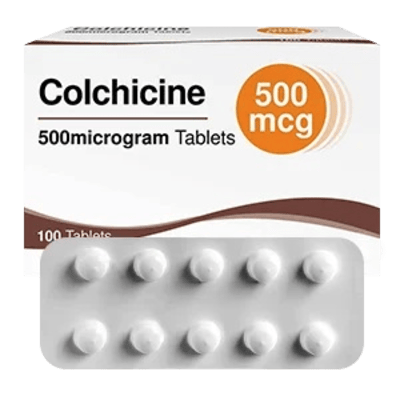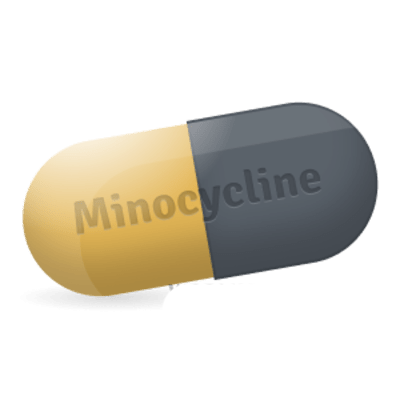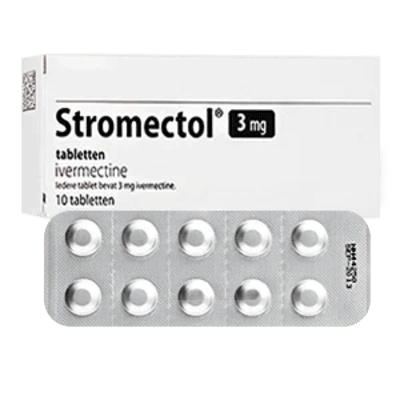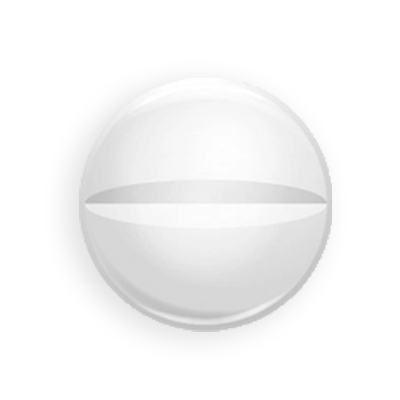I was very impressed with this drug. As soon as I started taking it, gout attacks became much less frequent and less painful.

Colchicine
- Quality products
- Support 24/7
- Fast delivery
What is it?
Colchicine is a medicine used in medical practice primarily to treat and prevent pain associated with gout. This is a chronic disease characterized by attacks of acute pain caused by the accumulation of uric acid crystals in the joints. In addition, the drug can be used to treat other conditions as prescribed by a doctor, making it a versatile remedy for inflammation and pain. It works by reducing inflammation, which helps relieve symptoms and improve the patients condition.
Composition
The composition of Colchicine is simple but effective. It is based on the active substance - colchicine, which provides the therapeutic effect. This component has a powerful anti-inflammatory effect, which allows it to be used to treat gout. Excipients of the drug may vary depending on the manufacturer, but usually include:
- Inactive ingredients such as lactose and starch for tablet form.
- Binders that ensure stability and uniform release of the active substance.
- Elements that ensure durability and preservation of the properties of the drug during storage.
This set of components makes Colchicine a reliable means of reducing pain and inflammation in gout, as well as in other medical conditions that require intervention.
How to use?
Correct use of Colchicine is very important to achieve the maximum therapeutic effect. Make sure you follow all instructions given by your doctor or pharmacist. The drug is usually taken orally and can be taken with or without food. However, it is important to remember some nuances associated with taking it.
- Take Colchicine exactly as prescribed by your doctor. If a regular schedule is prescribed, follow it strictly.
- Avoid consuming grapefruit and grapefruit juice at the same time as taking Colchicine, as this may affect the metabolism of the drug and its effectiveness.
- If you miss a dose, take it as soon as possible. If it is almost time for your next dose, skip the forgotten one and go back to your usual schedule.
Following these simple guidelines will help you use the drug as effectively as possible to achieve the desired results.
How does it work?
The mechanism of action of Colchicine is based on its ability to suppress the inflammatory processes that often occur with gout. This makes the drug so effective in treating the main symptoms of this disease. The active substance colchicine inhibits the migration of leukocytes to the area of inflammation, which reduces inflammatory reactions. This leads to a decrease in pain and swelling, which in turn helps to improve the patients well-being and the fastest possible restoration of the functionality of the affected joint.
Unlike some other anti-inflammatory drugs, Colchicine is not an analgesic, but it reduces inflammation, which ultimately makes it a good choice for long-term gout control. This drug helps not only treat acute attacks, but also prevent their occurrence in the future when taken regularly as prescribed by a doctor. So its use brings long-term benefits in the fight against gouty arthritis.
Indications
Colchicine is indicated for a number of medical conditions, the main one being gout. Due to its mechanism of action, the drug is able to not only alleviate the condition, but also prevent attacks. It is used in the following cases:
- Acute gout attack to reduce pain and inflammation.
- Chronic gout to reduce the frequency and severity of attacks as they occur.
- Certain other inflammatory conditions due to its ability to reduce inflammatory responses in the body.
These indications make Colchicine an important element in the arsenal of drugs intended for the treatment of gout and other related conditions, providing patients with an effective means of control.
Contraindications
However, like any medicine, Colchicine has contraindications that should be taken into account. Some of them concern individual intolerance or interaction with other medicines. Therefore, always consult a doctor before starting treatment. Do not use Colchicine if:
- You are allergic to colchicine or other components of the drug.
- You suffer from severe liver or kidney dysfunction.
- You have hypersensitivity to the components of other medicines that you take simultaneously with colchicine.
Given these contraindications, you should not start treatment without consulting a specialist to avoid adverse effects.
Side effects
There may be some side effects associated with taking Colchicine. Although many patients do not experience serious problems, it is important to be aware of your body’s possible reactions. The most common side effects include gastrointestinal discomfort, such as:
- Diarrhea, which can vary in severity.
- Nausea and occasional bouts of vomiting.
- Abdominal pain, which may be the result of irritation of the digestive tract.
There are also more serious side effects, such as severe allergic reactions or symptoms that indicate toxicity. In such cases, it is necessary to seek immediate medical attention.
Frequently asked questions
Colchicine Reviews and Experiences
Didnt expect Colchicine to be so effective. Was able to return to normal activity within a few weeks of starting, without constant pain.
At first there were concerns about side effects, but they hardly bothered me. The main thing is to monitor the dosage, and everything will be fine.









